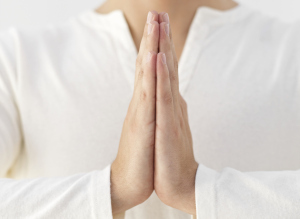
In her insightful book, “The Superstress Solution,” Roberta Lee, M.D. assesses the stress level in most homes today, and offers a word of caution about chronic stress. In her introduction, she writes:
We’re deluding ourselves if we think that we can indefinitely endure the macro stresses that accompany impersonal encounters, less sleep, more work, less leisure, raising kids in this dangerous world, bad marriages, less exercise, junk and processed foods eaten on the run, hyper-caffeinated and sugar-saturated beverages, addictive devices that give us “screen sickness,” traffic jams, flight delays, and so much more, and come away unscathed.
Stress isn’t all, bad, of course. In fact, like dark chocolate, small chunks here and there can be good for you, or at least give you a reason to get of bed in the morning. But chronic and severe stress can damage your body and mind, blocking the fluid communication to and from most organs–especially in the hypothalamic-pituitary-adrenal (HPA) axis and in the limbic system, the brain’s emotional center. Believe me, you want these two systems–much like the House and Senate–running as smoothly as possible, with low levels of the delinquent stress hormones in your bloodstream.
In college I realized that my stress tolerance was below seawater. Unlike friends who could pack their semester full of 21 credit hours, I never went above 16 because I wanted to stay as stress-free as possible. However, as a mother who works full time, there is no way around the stress. I’m running into it in the closet, when I can’t find two matching shoes; at parent-teacher conferences, where I am introduced to new issues; as I sit down to 200 unanswered emails; and at the vet’s office, when I’m told the dogs are allergic to the cheap food we’ve been buying and now must be placed on a salmon diet.
So I turn to my pacifiers, my stress busters. Most of them involve the support of friends, who reassure me that our house isn’t the only one that scares away babysitters; my marriage to the most patient man on the Western hemisphere; and, of course, my faith: turning to my higher power and dumping my load of responsibilities and disappointments and worry unto His lap, for Him to deal with.
Here, then, are 18 ways I try to de-stress!
1. Simplify
Cut your to-do list in half. How? Ask yourself this question after every item: Will I die tomorrow if this doesn’t get accomplished? I’m guessing you’ll get a lot of no’s.
2. Prioritize.
Let’s say you’ve got five huge work projects due next week, two Cub Scout commitments you promised your son, your mom’s overdue taxes on your desk, your wife’s 40th birthday celebration to plan, and your sister’s computer to fix. What do you do? You record all the tasks on a sheet of paper or on your computer and you give each one a number between 1 and 10: 10 being the most important (life threatening) to one (stupid bloody thing I signed up for). Start with the 10s. If you never get beyond the 8s, that’s okay!
3. Use pencil, not pen.
If you rely on your to-do list as much as I do, then you’ll want to start using pencil instead of pen. Because one important stress buster is to try to stay as flexible as you can. Things change!
4. Give away your cape.
If you haven’t already guessed by now, you are not a superpower and don’t possess supernatural qualities and capabilities. I’m sorry, but you’re going to have to join the race … the human race. Which means surrendering to limitations and conditions–like the number of hours in a day (24) and the amount of time it takes to get from point A to point B. In your car. Not in your bat mobile.
5. Collaborate and cooperate.
There are lots of people out there with to-do lists that look very similar to yours. Why not let them do some of your tasks so that you all don’t have to do them?
6. Laugh.
Just as chronic and severe stress can damage organic systems in our body, humor can heal.
7. Exercise.
Exercise relieves stress in several ways. First, cardiovascular workouts stimulate brain chemicals that foster growth of nerve cells. Second, exercise increases the activity of serotonin and/or norepinephrine. Third, a raised heart rate releases endorphins and a hormone known as ANP, which reduces pain, induces euphoria, and helps control the brain’s response to stress and anxiety.
8. Stop juggling.
I realize some multi-tasking is inevitable in our rushed culture. But do we really have to simultaneously cook dinner, talk to Mom, help with homework, and check e-mail? If you were an excellent waiter or waitress in your past or present, then skip this one.
9. Build boundaries.
Speaking of activities, get some boundaries, ASAP–meaning designate a place and time for certain things so that your brain doesn’t have to wear so many hats at the same time.
10. Think globally.
I don’t say this to induce a guilt trip. No, no, no. Because guilt trips compound stress. What I mean here is a simple reminder that compared to other problems in our world today–abject poverty in Somalia or Cambodia–the things that we stress about are pretty minor. Put another way: Don’t sweat the small stuff, and most of it is small stuff.
11. Avoid stimulants and sugar.
Here’s the catch-22: the more stressed you get, the more you crave coffee and doughnuts, pizza and Coke. But the more coffee, Coke, doughnuts, and pizza in your system, the more stressed you get. It’s not your imagination.
12. Compare and despair.
The last thing you should do when you’re stressed–which I always do when I’m stressed–is start looking around at other people’s package (job, family support, balanced brain) and pine for some of that. Comparing my insides to someone else’s outsides is a fruitless and dangerous game to play, especially when I’m stressed.
13. Avoid negative people.
Once the negativity is out there, it’s up to you to tell your brain not to dwell on it. And, well, if you’re like me, that cognitive exchange demands a lot of energy. Best to choose your friends carefully and avoid the toxic conversations as much as you can.
14. Sleep.
Everything breaks down when you don’t sleep well. Any sleep disturbance will diminish mental performance. Stress affects sleep and vice versa. Researchers at Pennsylvania State University College of Medicine compared patients with insomnia to those without sleep disruptions and found that the insomniacs with the most severe sleep disturbances secreted the highest amount of cortisol.
15. Categorize your problems.
If you lump your problems into categories, you will feel like you have less obstacles. I spend some time doing this in therapy every other week. Because to solve each and every hiccup is too overwhelming.
16. Lower your standards.
Fire the perfectionist in your head who won’t accept anything less from you than a five-star performance. She could single-handedly cause a lot of stress.
17. Just say no.
If you haven’t yet learned how to politely decline offers to head the next school fundraiser, it’s time you stand in front of a mirror and practice. Repeat after me: “Mr. X, I am so flattered by the invitation to serve on your committee. But I just simply can’t do it at this time.”
18. Learn how to recharge.
Know your rechargers and do them routinely.
* Click here to subscribe to Beyond Blue and click here to follow Therese on Twitter and click here to join Group Beyond Blue, a depression support group. Now stop clicking.

